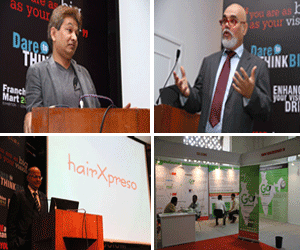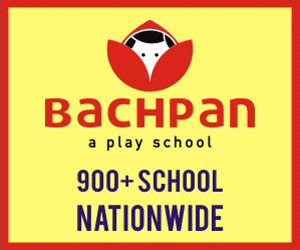Franchise Blog:The small farmer is affected by low yields, high cost of production and low price realisation. Farmers can be helped out by: helping cut down their costs of production and marketing, providing stable and remunerable market access and improving price realisation and/or increasing yields.
The corporate sector is involved in marketing agricultural inputs to farmers and buying farm produce from them.
Agribusiness or agricultural franchising is news in India, though it is quite commonly used in other businesses such as fast food, hotels and other service industries, where service quality is crucial for brand equity.
THE CONCEPT
An agribusiness franchise can be defined as a right, permission, or licence (often established by contract) granted by an agribusiness firm (called the franchisor) to another agribusiness firm (the franchisee) to distribute, manufacture, and/or use the trade name of the former’s products and services usually in a specified territory for a specified duration.
In addition, the franchisor provides assistance in organising, training, and merchandising. In return, the franchisor receives a certain amount from the franchisee as initial fee and a royalty on business volumes conducted.
The arrangement can be a product, business format or trade name franchise. Franchising helps franchisors spread faster in markets, achieve higher turnover, establish brand presence and leverage local resources for growth of the brand without taking all the risk.
On the franchisee side, the advantages of franchising include access to credit, technology, market, marketing, and higher turnover.
EVOLUTION IN INDIA
There have only been a few experiments in agribusiness franchising in India in the recent past by private and public agencies. NAFED (National Agricultural Co-operative Marketing Federation) has 2,000 franchisees across eight States of India for selling inputs, especially fertilisers (supplied by Indian Farmers’ Fertiliser Co-operative, IFFCO) and seeds, with 1,400 of them in UP alone.
Similarly, IFFCO, a national level fertiliser co-operative, has set up franchises in rural areas. It offers businesses such as rake handling, transportation, and warehousing of fertilisers and offers help in educational and promotional activities to 1,307 Primary Agricultural Co-operative Societies (PACS).
Each PACS gets Rs 60,000 for purchase of office furniture and agricultural implements. The insurance is provided by IIFCO-Tokio (IT) General Insurance Company. The PACS also sell seeds, pesticides, agricultural implements, and offer credit to member farmers.
Some years back, a private corporate agribusiness, Mahindra Shubhlabh Services Ltd (a subsidiary of tractor major-Mahindra and Mahindra), had set up dozens of franchises in rural India across States to provide one-stop solutions to small farmers.
NEW MODELS
Another major agro player, Aadhaar Wholesaling and Distribution Ltd (earlier Aadhaar Retailing and a joint venture company of Future group and Godrej Agrovet with 70:30 equity) has 33 of its 50 outlets run by franchisees in Gujarat and Punjab, though farm input sales are a small proportion of the total sales of these outlets (10-20 per cent) and they are not involved in buyback of produce as yet.
It has moved from company owned and company operated (COCO) store model to franchisee model.
Small agri start-up firms have found this model useful. An agribusiness start-up to facilitate farmers with better inputs and extension and markets in Bihar (farms and farmers) uses the franchising model, under which it runs nine outlets/centres called DeHaat.
These cater to a total of 4,000 farmer members (who pay Rs 200 annually each) with each covering a 10-12-km radius with services such as soil sample analysis, crop selection, and technical support during the season and marketing of farmer produce.
The franchisee invests about Rs 15,000-20,000 to begin with and is trained by farms and farmers (franchisor) for three months and profits are shared in a 75:25 ratio with 75 per cent going to the franchisee.
POTATO FARMING
More interesting is the case of another relatively new private sector potato supply chain company (Sidhivinayak Agri Processing Private Ltd (SAPPL). It has set up a new network of 36 franchisees in collaboration with a development project in Uttar Pradesh that provides farm input supply and produce buyback services to smallholders.
The development project, Sunhara India, is funded by Bill and Melinda Gates Foundation and Implemented by Agribusiness Systems International (ASI), a US-based non-profit consulting firm for four years.
The franchisees are the hubs from which farmers seek and obtain various services such as input supply, extension advice and disposal of their output of potato on a pre-agreed price and market outlet.
The franchisees are appointed by SAPPL which has extensive experience with farmers and the potato crop and works in many States of India through the franchise route in potato seed supply and output procurement and, in turn, supplies to various potato processors.
SAPPL helps the system work as it lines up markets for the produce and delivers seed and other needed inputs at the franchisee level, who are local entities and close to farmers as they have background in farming and related businesses locally.
SAPPL provides all the information, products and even services such as soil testing to the farmers through the franchisees and buys back the potato crop, thus completing the whole value chain of the potato crop.
This is what is needed when one talks of linking farmers with markets.
The non-refundable fee of Rs 0.15 million payable by each franchisee was paid in the case of first 25 franchisees by ASI. In 2012-13, six new franchises have paid the above franchise fee on their own.
SAPPL helped with training, input supply, and in some cases with input licences. The franchisee in general can sell all non-potato inputs from other companies.
The model needs to be tweaked for making it suitable to smaller entities and players, perhaps by lowering initial fees and increasing royalty.
But it is perhaps the first case of a development project covering some risks of a private sector investor — that too in a State such as Uttar Pradesh, where private entrepreneurs are not interested in investing, for a variety of reasons.
The SAPPL franchise model did not rely on sub-franchisees to interface with the farmer, and did not ask for minimum purchases.
Also, NAFED and IFFCO franchises are more like exclusive dealer arrangements. Further, SAPPL model covers both input and output sides of the value chain, at least of the potato crop.
In terms of impact, the potato seed supply and buyback of potato on behalf of SAPPL made a big difference to the franchisee turnover.
All franchisees had soil testing kits and potato quality testing facilities.
It shows that all agribusiness activities and functions are amenable to franchising.































 +91 9909960054
+91 9909960054
Pingback: Usha
Pingback: Dilip shastri
Pingback: Devaranjan Thudam(Bangalore)